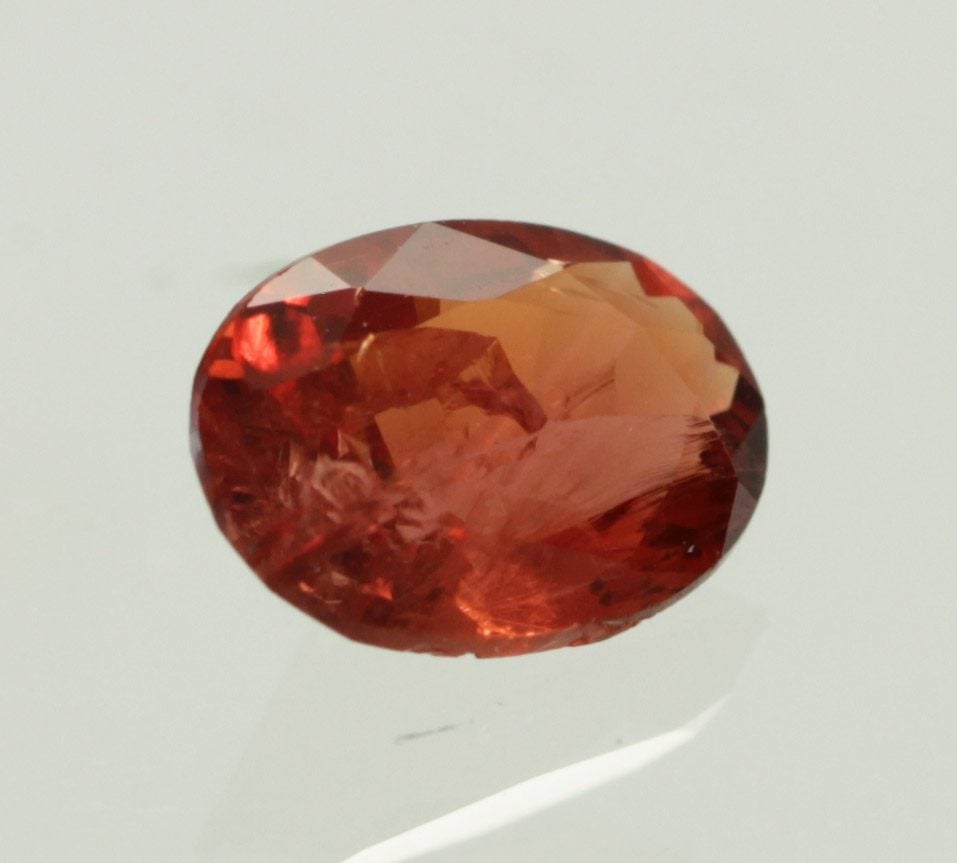Eudialyte Value, Price, and Jewelry Information
Although lapidaries can cut cabochons and decorative objects from massive or translucent eudialyte crystals, transparent material suitable for faceting is elusive and always small.
2 Minute Read
Although lapidaries can cut cabochons and decorative objects from massive or translucent eudialyte crystals, transparent material suitable for faceting is elusive and always small.
Start an IGS Membership today
for full access to our price guide (updated monthly).Eudialyte Value
What is Eudialyte?
Eudialyte, also spelled eudialite or eudyalite, belongs to a mineral group of the same name. Although this group of trigonal cyclosilicates contains many members, eudialytes are the only ones likely to be encountered as gemstones.
Some calcium-rich eudialytes, known as eucolites, have a uniaxial (-) optic character. These may also have higher refractive indices (RI) and specific gravity (SG) values than other eudialytes.
Does Eudialyte Make a Good Jewelry Stone?
With a hardness of 5 to 5.5, eudialyte jewelry stones should have protective settings to shield them from scratches. Occasional use is also advisable.
While uncut eudialyte crystals are popular specimens for mineral collections, faceted gemstones would make very rare, very prized additions.
Eudialytes can have deep to bright red colors, and gem cutters commonly fashion them into cabochons and carved objects.
Lapidaries often carve eudialytes into spheres. These objects frequently highlight the combination of black and white minerals in the matrix, especially black aegirine crystals, which adds a striking contrast to the red eudialyte stone.
Are Eudialytes Radioactive?
Eudialytes are mildly radioactive, but wearing or handling pieces under 5 cts (1 gram) should pose no health risks. On the other hand, holding a eudialyte sphere of 5,000 cts (1 kg) — a very large piece, indeed — would expose you to 2.40 mREM per hour. To put that in perspective, the average annual estimated radiation exposure in the U.S. from background radiation, medical sources, and consumer products is 360 mRem.
The radioactivity chart on the Webmineral site can help you estimate exposure for holding different sizes of eudialytes. You can also use a Geiger counter to measure the radioactivity of a specific gem or sample.
Are There Synthetic Eudialytes?
Scientists have synthesized eudialytes for geological and petrological research. However, there is no known jewelry use for this lab-created material. There are no known gemstone treatments or enhancements.
Where are Eudialytes Found?
The most notable source of eudialyte gem material, particularly for cabochons and carvings, is the Kola Peninsula in Russia.
Two localities in Quebec, Canada produce red, facetable eudialytes: Mont St. Hilaire (o = 1.596, e = 1.600; birefringence = 0.004); Kipawa Complex, Sheffield Lake, Temiscamingue County.
Greenland has multiple sites, such as Qaqortoq (Julienhaab District), which produces crystals up to 1" in length.
Other notable sources include the following locations:
- Magnet Cove, Arkansas, United States: rich red color, in feldspar.
- Sweden: (o = 1.598; e = 1.604; birefringence = 0.004; SG = 2.88)
- Brazil; Ampasibitika, Madagascar; Pilansberg, South Africa.
Stone Sizes
Lapidaries have faceted eudialytes well under 1 ct from Quebec material. These deep red gems are extremely rare.
- National Museums of Canada (Ottawa, Ontario): 0.30, 0.40 (intense red, Sheffield Lake, Quebec, Canada).
How to Care for Eudialyte Stones
Although eudialytes smaller than 5 cts are safe to wear, you should still take extra precautions when storing radioactive gems of any size. Keep eudialytes enclosed and separated from other gems, since radiation may gradually alter their color. Over time, even mildly radioactive materials release radon gases. Use radon detectors to monitor the buildup of radon gases in the storage container as well as the room.
To safely store and cut eudialyte, follow the recommendations for radioactive materials in our faceting safety guide.
Eudialytes are soluble in acids. Clean them only with a soft brush, mild detergent, and warm water. Consult our gemstone jewelry cleaning guide for more care recommendations.
Joel E. Arem, Ph.D., FGA
Dr. Joel E. Arem has more than 60 years of experience in the world of gems and minerals. After obtaining his Ph.D. in Mineralogy from Harvard University, he has published numerous books that are still among the most widely used references and guidebooks on crystals, gems and minerals in the world.
Co-founder and President of numerous organizations, Dr. Arem has enjoyed a lifelong career in mineralogy and gemology. He has been a Smithsonian scientist and Curator, a consultant to many well-known companies and institutions, and a prolific author and speaker. Although his main activities have been as a gem cutter and dealer, his focus has always been education. joelarem.com
International Gem Society
Related Articles
Black Diamond Value, Price, and Jewelry Information
Chameleon Diamond Value, Price, and Jewelry Information
Gray Diamond Value, Price, and Jewelry Information
Green Diamond Value, Price, and Jewelry Information
Latest Articles
800 Years of Mogok: A Celebration in Tenuous Times
What is the Average Gemstone Faceting Yield?
Pyroxmangite Value, Price, and Jewelry Information
How to Identify Emerald Simulants and Synthetics
Never Stop Learning
When you join the IGS community, you get trusted diamond & gemstone information when you need it.
Get Gemology Insights
Get started with the International Gem Society’s free guide to gemstone identification. Join our weekly newsletter & get a free copy of the Gem ID Checklist!
